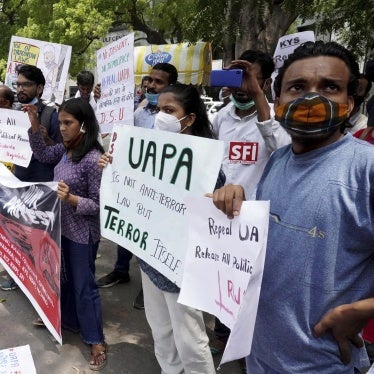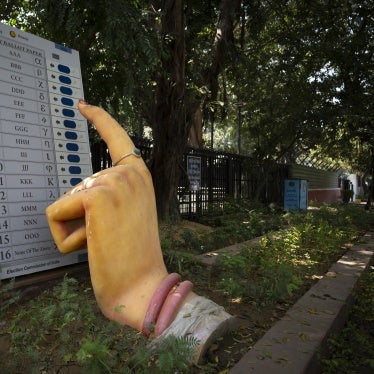In May 2012, during a parliamentary debate, Arun Jaitley, then-leader of the opposition, argued that the rules governing the Internet in India restricted such a wide range of expression that they were a threat to free speech.
“Now somebody can get up and criticise my party or criticise me, it is disparaging as far as my party or my criticism is concerned. Do I have a right to say that it be taken off the net?” Jaitley asked rhetorically. “I think, the words which have been used are being capable of stretched in a manner that there is a huge possibility of a future misuse.”
The topic under discussion at that time were the rules issued under the Information Technology Act, which requires intermediary companies (such as online service providers) to restrict a range of expression, including content that is “grossly harmful,” “harassing,” or “disparaging.” This imposes significant responsibility on intermediary companies to monitor and censor content posted by third parties.
The Information Technology (Intermediary Guidelines) Rules were challenged before the Indian Supreme Court as violating constitutional freedom of expression protections. The court is also assessing the constitutionality of several provisions in the Information Technology Act, including the overly broad and vaguely worded section 66A, which proscribes content that is “grossly harmful,” “has menacing character,” or causes annoyance or inconvenience. The interpretation of such vague terms leaves wide scope for arbitrary application, and has attracted much criticism in the last couple years because of arrests that show how the law is prone to abuse.
Jaitley’s Bharatiya Janata Party is now in government after winning the 2014 general election. It will be his government that will be faced with defending the law. Already, it has admitted that there was abuse of power in certain cases where section 66A was invoked and wrongful arrests were made.
Instead of defending the law, the government should tell the court that it wants to review the provisions, and make amendments to ensure freedom of expression. As a party that used social media so effectively during the election campaign, this government should now also acknowledge that Internet freedom can play a positive part in ensuring the commitment to growth, innovation, good governance, and global competitiveness.








